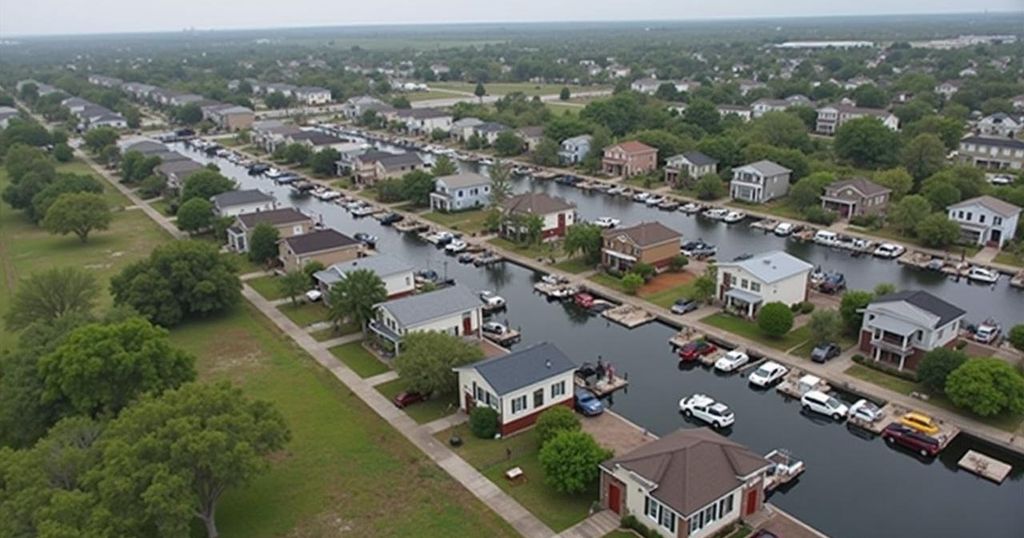Hurricane Helene: Casualty Figures Rise Amid Uncertainty of Missing Persons

North Carolina grapples with the aftermath of Hurricane Helene, with a confirmed death toll of at least 115 and an uncounted number of missing persons estimated at 600. Over 200 individuals in Buncombe County alone remain unaccounted for. Volunteer efforts have documented significant missing person reports, while misinformation hampers recovery. Hurricane Helene made landfall on September 26, 2023, causing extensive flooding and infrastructure damage, leaving nearly 50,000 residents without power.
North Carolina continues to grapple with the aftermath of Hurricane Helene, as officials have yet to ascertain the exact number of missing persons following the devastating storm. The state has confirmed at least 115 fatalities, accounting for the highest death toll among the southeastern states that the hurricane impacted two weeks prior. The North Carolina Department of Health and Human Services is currently working to consolidate missing persons reports from various agencies, yet they have stated that a precise count of the missing is still unavailable. Following initial estimates from the White House indicating that up to 600 individuals may be unaccounted for across six states, the situation remains fluid. In Buncombe County, which encompasses the severely affected city of Asheville, Sheriff Quentin Miller reported over 200 residents are either missing or stranded. Governor Roy Cooper emphasized the extensive damage incurred, noting entire communities within the Blue Ridge Mountains were essentially “wiped off the map” due to unprecedented rainfall. The confirmed death toll has reached 115 in North Carolina alone, while surrounding states report: 49 fatalities in South Carolina, 33 in Georgia, 20 in Florida, 12 in Tennessee, and two in Virginia. Volunteer Ellie Erickson has been actively tracking missing persons with a Google spreadsheet, reporting a total of 1,412 individuals listed as missing. Most of these reports originate from North Carolina but include residents from neighboring states such as Florida, South Carolina, Tennessee, and Georgia. Families are urgently searching for answers about their loved ones; for instance, the family of teacher Kim Ashby has learned that the search for her, swept away by swift river currents, has transitioned to authorities in Tennessee. Others, such as John Norwood, are still seeking his fiancée, who vanished during the storm. Despite the ongoing recovery efforts, misinformation during the recovery has hindered the search, according to Buncombe County spokesperson Lillian Govus. She reported rumors, such as thousands being trapped in a North Carolina church, add confusion and drain valuable resources. Errors in information dissemination have echoed at a federal level, exacerbated by statements from former President Donald Trump and others claiming FEMA was unable to assist due to resource shortages. The FEMA chief condemned these inaccuracies, labeling them as detrimental to the recovery process. Hurricane Helene made landfall on September 26, 2023, as a Category 4 storm, leading to catastrophic floods and landslides that have devastated infrastructure, including key highways in North Carolina. As of now, nearly 50,000 residents remain without power in the state. The situation remains dire as search and recovery operations continue and the community seeks to aid those still missing, while also battling misinformation that complicates efforts further.
Hurricane Helene, which struck in September 2023, has wrought significant destruction across multiple southeastern states, particularly in North Carolina, where it has been assessed as having caused the highest number of fatalities. Heavy rainfall, surpassing two feet in certain areas, resulted in flooding and landslides, severely impacting communities including Asheville. Recovery efforts face challenges from misinformation circulating on social media, complicating search and rescue operations. Additionally, the sheer number of missing individuals reported raises concerns about the effectiveness of current recovery protocols.
The aftermath of Hurricane Helene showcases a pressing need for coordinated recovery efforts as North Carolina deals with a staggering number of fatalities and missing persons. The challenges posed by misinformation highlight the importance of clear communication in disaster response. Families continue to seek clarity on the status of their loved ones, as search and recovery operations strive to identify and assist those affected by the storm’s devastation. The situation underscores the resilience required by communities as they navigate the dual challenges of suffering and recovery.
Original Source: www.forbes.com








